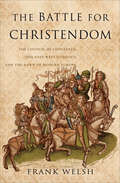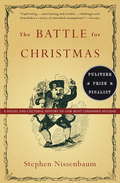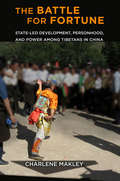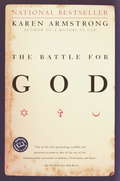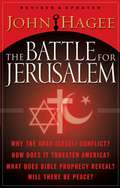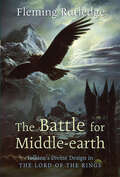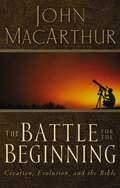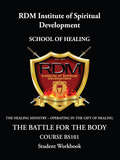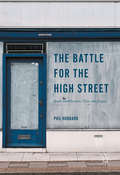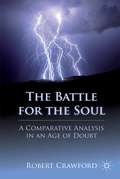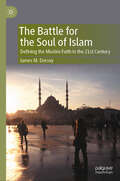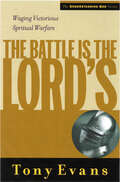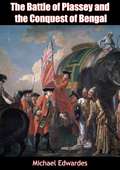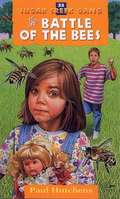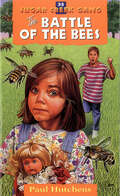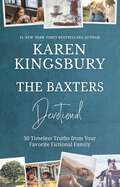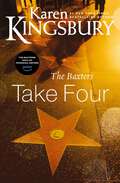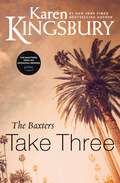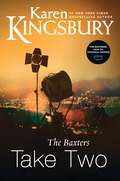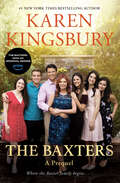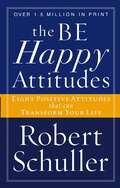- Table View
- List View
The Battle for Christendom: The Council of Constance, the East-West Conflict, and the Dawn of Modern Europe
by Frank WelshThe fifteenth century Council of Constance ends the Catholic Church&’s papal schism and sets Europe on its path to the Renaissance in this in-depth history. At the dawn of the fifteenth century, the Ottoman Empire posed an existential threat to Christian Europe. Meanwhile, the Catholic Church was in chaos, with three Popes claiming the Chair of Saint Peter and dangerous stirrings of reform. In an attempt to save the Christian world, Emperor Sigismund of the Holy Roman Empire called the nations of Europe together for a conference at Constance, beside the Rhine. In The Battle for Christendom, historian Frank Welsh demonstrates that the 1414 Council of Constance was one of the most pivotal events in European history. The last event of the medieval world, the months of fierce debate and political maneuvering heralded the dawn of the Renaissance and the rise of humanism. Yet it would also bring about darker events, as the first moments of the Protestant Reformation began with the burning of the Czech divine, Jan Hus. The story rises to a climax on the battlements of Constantinople in 1453 where, despite all of Sigismund&’s attempts to repel the Ottomans, the East rose up once more. In Welsh&’s lively retelling, The Battle for Christendom is an enthralling history that holds lessons for our own times of international turmoil.
The Battle for Christmas
by Stephen NissenbaumAnyone who laments the excesses of Christmas might consider the Puritans of colonial Massachusetts: they simply outlawed the holiday. The Puritans had their reasons, since Christmas was once an occasion for drunkenness and riot, when poor "wassailers extorted food and drink from the well-to-do. In this intriguing and innovative work of social history, Stephen Nissenbaum rediscovers Christmas's carnival origins and shows how it was transformed, during the nineteenth century, into a festival of domesticity and consumerism. Drawing on a wealth of period documents and illustrations, Nissenbaum charts the invention of our current Yuletide traditions, from St. Nicholas to the Christmas tree and, perhaps most radically, the practice of giving gifts to children. Bursting with detail, filled with subversive readings of such seasonal classics as "A Visit from St. Nicholas and A Christmas Carol, The Battle for Christmas captures the glorious strangeness of the past even as it helps us better understand our present.
The Battle for Fortune: State-Led Development, Personhood, and Power among Tibetans in China (Studies of the Weatherhead East Asian Institute, Columbia University)
by Charlene MakleyIn a deeply ethnographic appraisal, based on years of in situ research, The Battle for Fortune looks at the rising stakes of Tibetans’ encounters with Chinese state-led development projects in the early 2000s. The book builds upon anthropology’s qualitative approach to personhood, power and space to rethink the premises and consequences of economic development campaigns in China's multiethnic northwestern province of Qinghai.Charlene Makley considers Tibetans’ encounters with development projects as first and foremost a historically situated interpretive politics, in which people negotiate the presence or absence of moral and authoritative persons and their associated jurisdictions and powers. Because most Tibetans believe the active presence of deities and other invisible beings has been the ground of power, causation, and fertile or fortunate landscapes, Makley also takes divine beings seriously, refusing to relegate them to a separate, less consequential, "religious" or "premodern" world. The Battle for Fortune, therefore challenges readers to grasp the unique reality of Tibetans’ values and fears in the face of their marginalization in China. Makley uses this approach to encourage a more multidimensional and dynamic understanding of state-local relations than mainstream accounts of development and unrest that portray Tibet and China as a kind of yin-and-yang pair for models of statehood and development in a new global order.
The Battle for God
by Karen ArmstrongBONUS: This edition contains an excerpt from Karen Armstrong's Twelve Steps to a Compassionate Life.In the late twentieth century, fundamentalism has emerged as one of the most powerful forces at work in the world, contesting the dominance of modern secular values and threatening peace and harmony around the globe. Yet it remains incomprehensible to a large number of people. In The Battle for God, Karen Armstrong brilliantly and sympathetically shows us how and why fundamentalist groups came into existence and what they yearn to accomplish.We see the West in the sixteenth century beginning to create an entirely new kind of civilization, which brought in its wake change in every aspect of life -- often painful and violent, even if liberating. Armstrong argues that one of the things that changed most was religion. People could no longer think about or experience the divine in the same way; they had to develop new forms of faith to fit their new circumstances. Armstrong characterizes fundamentalism as one of these new ways of being religious that have emerged in every major faith tradition. Focusing on Protestant fundamentalism in the United States, Jewish fundamentalism in Israel, and Muslim fundamentalism in Egypt and Iran, she examines the ways in which these movements, while not monolithic, have each sprung from a dread of modernity -- often in response to assault (sometimes unwitting, sometimes intentional) by the mainstream society.Armstrong sees fundamentalist groups as complex, innovative, and modern -- rather than as throwbacks to the past -- but contends that they have failed in religious terms. Maintaining that fundamentalism often exists in symbiotic relationship with an aggressive modernity, each impelling the other on to greater excess, she suggests compassion as a way to defuse what is now an intensifying conflict.
The Battle for Jerusalem
by John HageeNewly updated and revised with the most current information about the events in the Middle East, Pastor John Hagee explains how the Israeli and Palestinian conflict will affect global politics, America's energy supply, and the world economy. The Battle for Jerusalem explores the heart of Israel's current struggle, the history behind the antagonism between Arabs and Jews, and the powerful significance of the Temple Mount, a thirty-five acre parcel that is the most fiercely contested real estate on the planet. Hagee explains how this conflict is not merely political or economic, but is also spiritual, with the repercussions of their actions continuing to echo across the world. Most importantly, Hagee illustrates how all the players in this tortuous conflict fit into God's plan for the ages.Previous editions: 0-7852-6788-3, 0-7852-6588-0, and 0-7852-6542-2
The Battle for Middle-earth: Tolkien's Divine Design in The Lord of the Rings
by Fleming RutledgeJ. R. R. Tolkien's Lord of the Rings has long been acknowledged as the gold standard for fantasy fiction, and the recent Oscar-winning movie trilogy has brought forth a whole new generation of fans. Many Tolkien enthusiasts, however, are not aware of the profoundly religious dimension of the great Ring saga. In The Battle for Middle-earth Fleming Rutledge employs a distinctive technique to uncover the theological currents that lie just under the surface of Tolkien's epic tale. Rutledge believes that the best way to understand this powerful "deep narrative" is to examine the story as it unfolds, preserving some of its original dramatic tension. This deep narrative has not previously been sufficiently analyzed or celebrated. Writing as an enthusiastic but careful reader, Rutledge draws on Tolkien's extensive correspondence to show how biblical and liturgical motifs shape the action. At the heart of the plot lies a rare glimpse of what human freedom really means within the Divine Plan of God. The Battle for Middle-earth surely will, as Rutledge hopes, "give pleasure to those who may already have detected the presence of the sub-narrative, and insight to those who may have missed it on first reading."
The Battle for the Beginning: The Bible on Creation and the Fall of Adam
by John MacarthurThe battle lines have been drawn. Is the enemy winning?"Thanks to the theory of evolution," writes best-selling author John MacArthur, "naturalism is now the dominant religion of modern society. Less than a century and a half ago, Charles Darwin popularized the credo for this secular religion. Naturalism has now replaced Christianity as the main religion of the Western world, and evolution has become its principal dogma."Many Christians who claim to believe that the Bible is God's revealed truth seem willing to allow modern scientific theories to replace the Genesis account of creation. Such compromises present a conspicuous danger. Bible teacher and pastor, John MacArthur, believes that in Genesis 1-3 we find the foundation of every doctrine that is essential to the Christian faith?the vital underpinnings for everything we believe.The Battle for the Beginning draws a clear line on today's theological landscape. "Everything in Scripture that teaches about sin and redemption assumes the literal truth of the first three chapters of Genesis. If we wobble to any degree on the truth of this passage," John MacArthur insists, "we undermind the very foundations of our faith."
The Battle for the Body Course: BS101 Student Workbook
by Robin DinnanauthThere is a great battle being waged in the spiritual world. It is a personal battle within the flesh and the spirit. It is a social battle with the evil forces of the world. It is a spiritual battle with evil supernatural powers. It is also a physical battle, with attacks launched against your body which is the temple of the Holy Spirit. In Old Testament times a trumpet was used to summons God's people to battle. Today, a spiritual summons is sounding throughout the nations of the world. It is a summons to be invisible war. It is the call to arms...
The Battle for the High Street: Retail Gentrification, Class and Disgust
by Phil HubbardThis book analyses the social and cultural status of high streets in the age of recession and austerity. High streets are shown to have long been regarded as the heart of many communities, but have declined to a state where boarded-up and vacant retail units are a familiar sight in many British cities. The book argues that the policies deemed necessary to revive the fortunes of high streets are often thinly-veiled attacks on the tastes and cultures of the working class. Policy-makers often promote boutiques, art galleries and upmarket cafés at the expense of some of the outlets frequented by less affluent populations, including betting shops, fast food takeaways, discount stores and bargain booze outlets. Highlighting the social and cultural roles that so-called 'dying' high streets continue to play in the lives of working class and disadvantaged populations, this book provides a powerful argument against retail gentrification, and a timely analysis of class conflict in austerity Britain. It will be of great interest to scholars of geography, social policy and cultural studies.
The Battle for the Soul
by Robert CrawfordDo we all possess a soul? If so, what is it? Can it be defined? Crawford argues that it is important that we have a soul because if it is immortal then we can hope for life after death. But some religions insist that it is the resurrection of the body which is vital.
The Battle for the Soul of Islam: Defining the Muslim Faith in the 21st Century
by James M. DorseyThis book describes the battle between major Middle Eastern and Asian Muslim-majority states to control the definition of Islam in the 21st century. Focusing on United Arab Emirates, Saudi Arabia, and Indonesia, the book explores how the outcome of this battle will significantly empower the winner, or winners, to wield religious soft power, secure leadership of the Islamic world, and project strategic influence worldwide. The result of the rivalry will determine which notions of a ‘moderate Islam’ will prevail including the degree to which these notions embrace religious and political pluralism, tolerance, gender equality, secularism, and human rights as defined by the Universal Declaration of Human Rights or remain vague, as in current Saudi and Emirate usage of the term moderation, which is designed to mask these states’ failure to systematically integrate these values into their domestic and foreign policy agendas. Ultimately, the battle for the soul of Islam will significantly impact how Muslims worldwide understand and practice their faith. Waged in diverse arenas across the globe, this complex religious and geopolitical struggle will play a significant role in determining the prospects for peace and security not only in the vast region extending from the Atlantic coast of Africa to the Philippines but also in the United States and Europe.
The Battle is the Lords: Waging Victorious Spiritual Warfare (Understanding God Ser.)
by Tony EvansDo you want to be challenged to deepen your understanding of the characteristics and requirements of Almighty God? The Understanding God Series contains the bulk of Pastor Tony Evans' compelling and hard-hitting resources on the essentials about God, Jesus Christ, the Holy Spirit, Spiritual Warfare, and prophecy. Now available in paperback, readers will not want to be without a single book in the series by this popular and powerful speaker and author.Just because many of us ignore spiritual warfare does not mean we're not in an intense battle. Tony Evans tackles this difficult and theologically complex issue with the intensity, skill, and biblical foundation readers have come to expect. He systematically reveals Satan's strategies and helps readers fight back.
The Battle is the Lords: Waging Victorious Spiritual Warfare (Understanding God Ser.)
by Tony EvansDo you want to be challenged to deepen your understanding of the characteristics and requirements of Almighty God? The Understanding God Series contains the bulk of Pastor Tony Evans' compelling and hard-hitting resources on the essentials about God, Jesus Christ, the Holy Spirit, Spiritual Warfare, and prophecy. Now available in paperback, readers will not want to be without a single book in the series by this popular and powerful speaker and author.Just because many of us ignore spiritual warfare does not mean we're not in an intense battle. Tony Evans tackles this difficult and theologically complex issue with the intensity, skill, and biblical foundation readers have come to expect. He systematically reveals Satan's strategies and helps readers fight back.
The Battle of Plassey and the Conquest of Bengal
by Michael EdwardesThe Battle of Plassey, won by Robert Clive for Britain, was decisive in establishing a firm base in Bengal and from that victory the British became an imperial power whose Indian Empire was to last for nearly 200 years.Plentiful and apposite illustrations throughout this work lend humanity and colour to a study important not less in imperial than in purely military terms.
The Battle of the Bees (Sugar Creek Gang #33)
by Paul HutchensAn innocent game of softball in Bill Collins's barnyard nearly turns fatal. Bill's little sister Charlotte Ann follows him too close to the beehives. Can he or his friend Circus save her from the angry bees? Come along with the Sugar Creek Gang as they learn the importance of honoring your father and mother. The Sugar Creek Gang series chronicles the faith-building adventures of a group of fun-loving, courageous Christian boys. These classic stories have been inspiring children to grow in their faith for more than five decades. More than three million copies later, children continue to grow up relating to members of the gang as they struggle with the application of their Christian faith to the adventure of life. Now that these stories have been updated for a new generation, you and your child can join in the Sugar Creek excitement. Paul Hutchens's memories of childhood adventures around the fishing hole, the swimming hole, the island, and the woods that surround Indiana's Sugar Creek inspired these beloved tales.
The Battle of the Bees (Sugar Creek Gang Original Series #33)
by Paul HutchensWhat kind of trouble can Bill Collins get into when he's spending the afternoon babysitting his little sister, Charlotte Ann? Plenty! The Gang find themselves in the middle of a war between two of the beehives in Mr. Collins honey bee yard. A note from Old Man Paddler challenges the Sugar Creek Gang with a riddle that reveals more than they bargained for as they uncover a trespassing boy up at his cabin in the woods. Join the Sugar Creek Gang as they learn a few lessons about loving as Jesus does.
The Battle of the Bees (Sugar Creek Gang Original Series #33)
by Paul HutchensWhat kind of trouble can Bill Collins get into when he's spending the afternoon babysitting his little sister, Charlotte Ann? Plenty! The Gang find themselves in the middle of a war between two of the beehives in Mr. Collins honey bee yard. A note from Old Man Paddler challenges the Sugar Creek Gang with a riddle that reveals more than they bargained for as they uncover a trespassing boy up at his cabin in the woods. Join the Sugar Creek Gang as they learn a few lessons about loving as Jesus does.
The Baxters Devotional: 30 Timeless Truths from Your Favorite Fictional Family
by Karen KingsburyFrom #1 New York Times bestselling author Karen Kingsbury, whose 25 million copies sold include numerous books about the popular Baxter family, comes a thirty-day devotional to help readers find the life-giving hope and deeper faith of the Baxter family.With the massive success of The Baxters TV show on Amazon Prime Video, Karen Kingsbury heard from tens of thousands of readers who wanted more regarding the faith of everyone&’s favorite fictional family. Finally, it became clear that there was a piece missing from the Baxter family saga. This is that missing piece. The Baxters Devotional. In this book, not only will you find the list of Bible verses that start each TV episode, but through those verses, you will also go deeper into the trials and triumphs that face the Baxters. This devotional can be shared with a group, but it will also be powerful in a personal setting. Because it is in quiet moments that we find some of our greatest growth. These thirty devotions include questions, writing prompts, and numerous Scriptures for a deeper biblical exploration. Karen has also added stories from her own life and faith as a part of each reading. Even if you have not read the Baxter books or watched The Baxters on Amazon, you will gain much from this devotional. However, if you want to know more, pick up the first book in the Redemption Series – Redemption – or watch The Baxters TV show on Amazon Prime Video. The Baxters Devotional will certainly deepen your spiritual understanding about the issues we face today. It is the perfect book for a new year, a new you, and a fresh start!
The Baxters Take Four: The Baxters Take One, The Baxters Take Two, The Baxters Take Three, The Baxters Take Four (The Baxters—Above the Line #No. 4)
by Karen KingsburyAre fairytale endings only in the movies?Keith Ellison and Dayne Matthews have finally inked a deal to have the nation&’s top young actor star in their current film. But at the same time, the actor takes a very public fall that threatens his reputation among his fan base. Meanwhile, healing happens for Andi Ellison in her relationship with God, her family, and those she loves, but is it too late? The new producers find they must truly act as missionaries in order to help save the film, their families, and the young movie star. Breakthroughs take place that the public will never know about, as the possibility of saving the world through film is finally a very real possibility.Part of New York Times bestselling author Karen Kingsbury's beloved Baxter series that begins with Redemption, Remember, Return, and Rejoice, now streaming onlineInspirational women's fiction with plenty of heart and a thread of sweet romance
The Baxters Take One: The Baxters Take One, The Baxters Take Two, The Baxters Take Three, The Baxters Take Four (The Baxters—Above the Line #1)
by Karen KingsburyTwo unknown producers struggle to fulfill their dreams to change lives through the power of film. With millions of investors&’ dollars on the line, everything starts to fall apart and they realize they may be in over their heads. Is it possible to beat the odds and make a movie unlike anything ever done before? Or, will they lose everything in the process?Could they change the world—before the world changes them? Filmmakers Chase Ryan and Keith Ellison left the mission field of Indonesia for the mission field of Hollywood with a dream bigger than both of them. Now they have done the impossible: raised enough money to produce a feature film with a message that could change the world. But as Chase and Keith begin shooting, their well-laid plans begin to unravel. With millions of dollars on the line, they make a desperate attempt to keep the film from falling apart—even as a temperamental actress, a botched production schedule, and their own insecurities leave little room for the creative and spiritual passion that once motivated them. Was God really behind this movie after all? A chance meeting and friendship with John Baxter could bring the encouragement they need to stay on mission and produce a movie that will actually change people&’s lives. In the midst of the questions and the cameras, is it possible to keep things above the line and make a movie unlike anything done before—or is the risk too great for everyone?Part of New York Times bestselling author Karen Kingsbury's beloved Baxter series that begins with Redemption, Remember, Return, and Rejoice, now streaming onlineInspirational women's fiction with plenty of heart and a thread of sweet romance
The Baxters Take Three: The Baxters Take One, The Baxters Take Two, The Baxters Take Three, The Baxters Take Four (The Baxters—Above the Line #3)
by Karen KingsburyFor the sake of a dream . . . or the love of fame?Chase Ryan and Keith Ellison set out to change the world with their films--and they are finally seeing their dreams come true. The dedicated producers are deep in negotiations with America's top young movie star to play the lead in their next inspirational movie. But life takes a sudden turn for Chase, removing him from Jeremiah Productions permanently. In the process, Keith brings on one of the Baxter family members and the moviemaking continues.At the same time, a crisis hits Keith's daughter, Andi, and Keith feels helpless to respond.Devastated by the consequences of her wrong actions, Andi ventures out on her own and decides on a course of action that could destroy her. Meanwhile, Bailey Flanigan is caught up in her own drama with Cody Coleman. A Campus Crusade retreat gives them time alone along the shores of Lake Monroe and lets them face a possibility they've avoided for years.Will Keith keep the passion he had at the start of his filmmaking--and will there be enough passion left over for his hurting daughter? Or has their quest to change American culture become nothing more than a quest for fame?Part of New York Times bestselling author Karen Kingsbury's beloved Baxter series that begins with Redemption, Remember, Return, and Rejoice, now streaming onlineInspirational women's fiction with plenty of heart and a thread of sweet romance
The Baxters Take Two: The Baxters Take One, The Baxters Take Two, The Baxters Take Three, The Baxters Take Four (The Baxters—Above the Line #No. 2)
by Karen KingsburyWill the price of fame be worth the cost?Filmmakers Chase Ryan and Keith Ellison have completed their first feature film, and Hollywood is buzzing with the news. In the wake of that excitement, the producers acquire rights to a novel that has all the ingredients they want for their next project. At the same time they cross paths with a well-connected player who introduces them to the right people, and suddenly every studio in town wants to talk to Chase and Keith.The producers' dreams are on the verge of coming true, but Chase's marriage is strained and Keith's daughter--Andi Ellison--is making questionable choices in her quest for stardom. The producers are gaining respect and are on the verge of truly changing culture through the power of film--but is the change worth the cost?Part of New York Times bestselling author Karen Kingsbury's beloved Baxter series that begins with Redemption, Remember, Return, and Rejoice, now streaming onlineInspirational women's fiction with plenty of heart and a thread of sweet romance
The Baxters: A Prequel (The\baxters--above The Line Ser. #1)
by Karen KingsburyNow an original series on Prime Video This warmhearted prequel to the &“heart-tugging and emotional&” (RT Book Reviews) #1 New York Times bestselling Baxter Family Series—now a television series—follows the family members as they face rising tensions during a wedding and a colossal storm.A terrible storm builds in the early morning sky over Bloomington, Indiana, as Elizabeth Baxter prepares to celebrate her daughter Kari&’s wedding to Tim Jacobs. It&’s supposed to be the happiest of days, but Elizabeth can&’t shake a growing sense of dread. Something bad is about to happen. Elizabeth knows it. Indeed, there are dark currents of conflict and doubt coursing through each of the Baxter family, and Kari Baxter is starting to panic. Is her decision to marry Tim a mistake? Meanwhile, Kari&’s brother Luke is angry and resentful of their sister Ashley, who has recently returned from Paris as a single mom. Everyone thinks Ashley spends too little time with her son, and they&’re upset with her for another reason: Ashley has rejected her loyal long-ago love, Landon Blake, who clearly still cares for her. At the same time, the four Baxter sisters are struggling with the faith that has always been the family&’s glue. When the storm outside reaches a terrifying crescendo, a shocking moment of danger brings important truths to light. At the end of the long day, can the Baxters remain a family, tested but stronger?
The Bay Psalm Book: The First Book Printed in British North America, 1640
by Zoltan HarasztiThe founders of the Massachusetts Bay Colony came to the New World seeking religious freedom, and their first publication was a hymnal: The Bay Psalm Book, printed just twenty years after the Pilgrims' arrival. This book, with which the Pilgrims literally sang their praises to God, presents a translation of the Psalms from Hebrew, transposed into metrical rhyme for congregational singing. An instant success, the book was adopted throughout the colonies and remained in use for well over a century. Only eleven known original editions survive, one of which recently sold at auction for a record $14.2 million, making it the most expensive book in the world. This facsimile of a rare first edition includes a companion volume, The Enigma of the Bay Psalm Book, which provides an academic study of the psalter's history and contents. Both books are encompassed in this single volume, offering readers and collectors a personal edition of a major icon of book history and a great artifact of American culture.
The Be Happy Attitudes: Eight Positive Attitudes that can Transform Your Life
by Robert SchullerIn a society of quick fixes and instant gratification, it seems as though true happiness is always just around the next bend. But the "happiness" of the world will never offer the wholeness that makes one content and satisfied. Dr. Robert Schuller believes the answer to this cycle of disappointment, frustration, and regret can be found in one of the most famous passages in scripture - Jesus' Sermon on the Mount.
